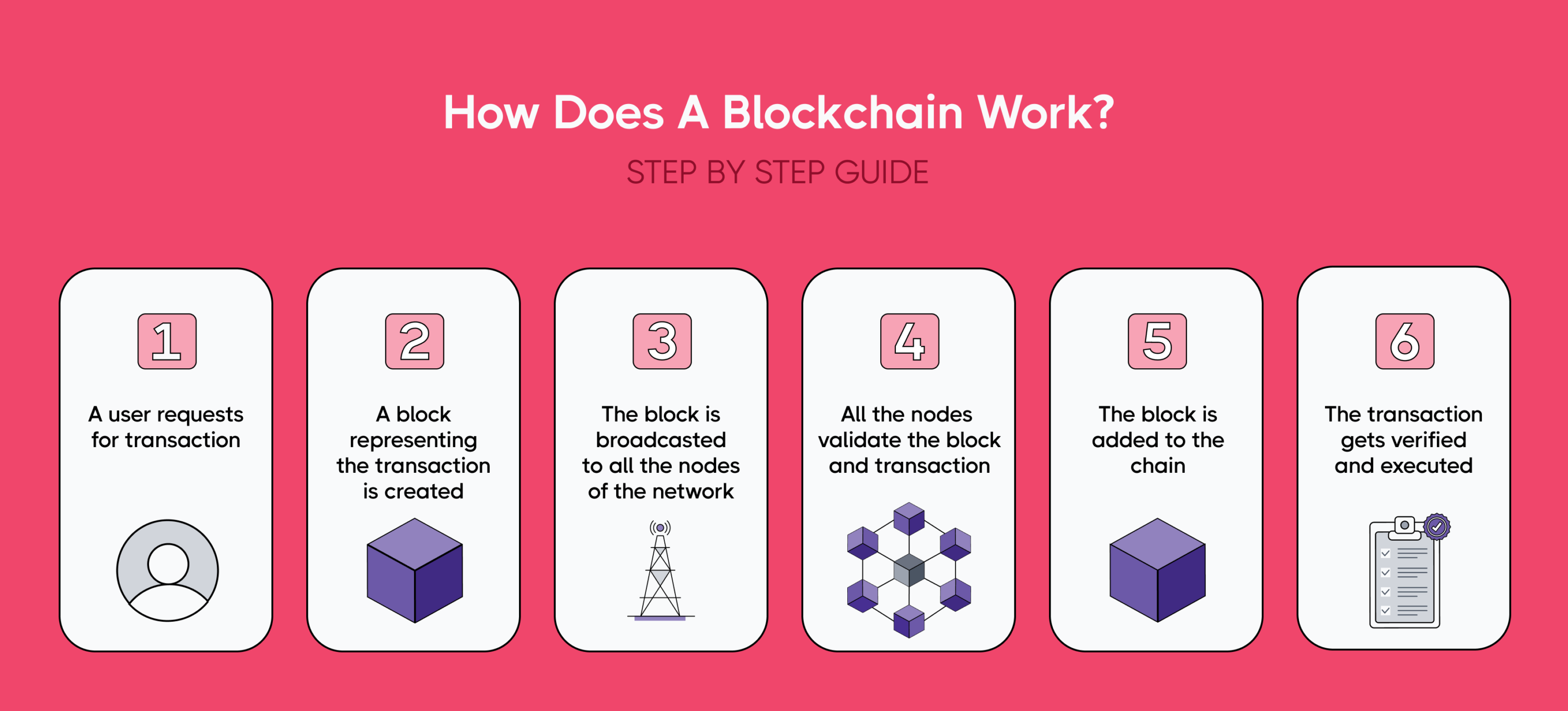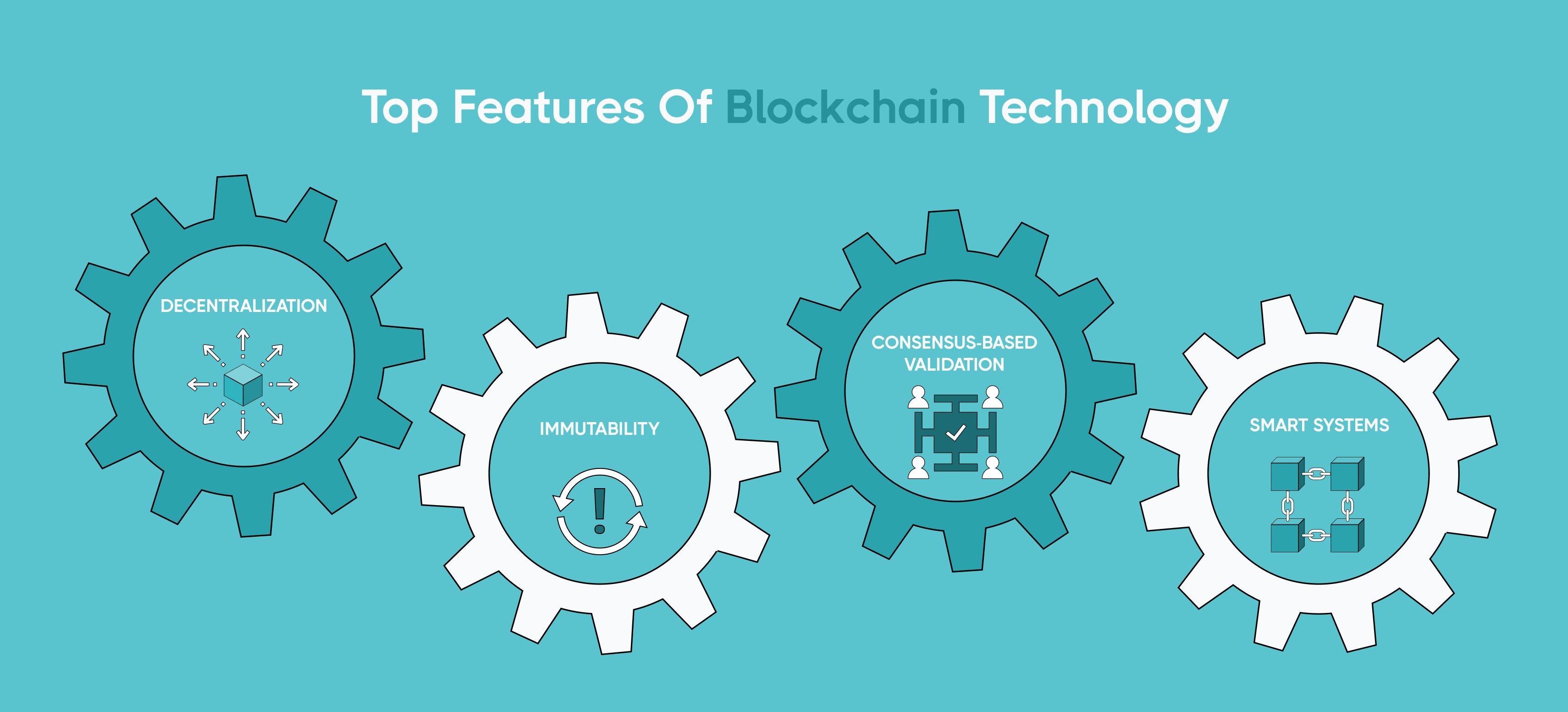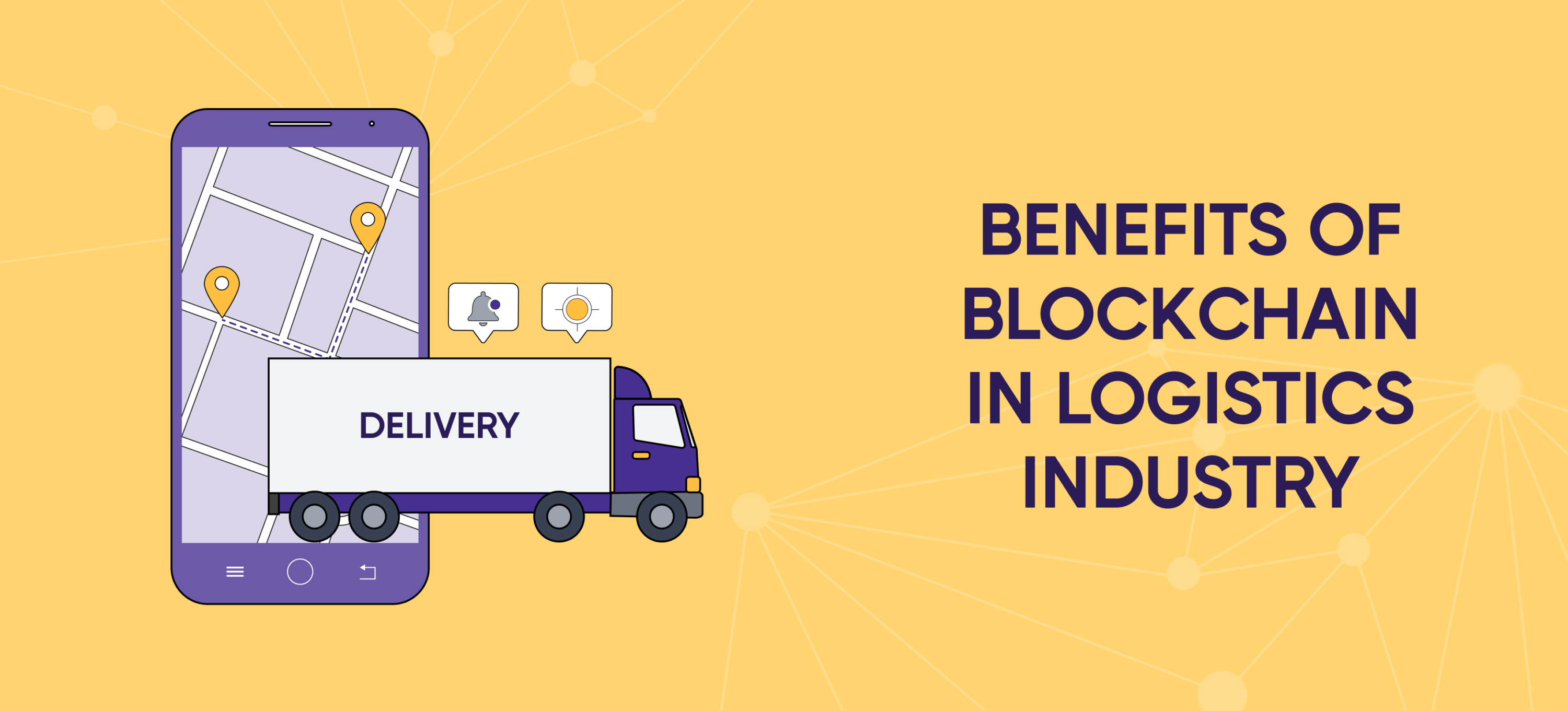
Sahiba Cuccria
8 mins read
6 mins read


The rapidly evolving world of eCommerce can be hard to keep up with.
As an eCommerce business owner, logistics plays a pivotal role in ensuring seamless operations, and you want to create a system that is as efficient as possible. One technology that holds great promise in revolutionizing the logistics industry is blockchain.
In this article, we will dive into the latest innovations and trends with the introduction of blockchain into the logistics industry, highlighting the benefits that blockchain brings to both eCommerce store owners and logistics companies all over the world.
Before diving into the impact of blockchain on logistics, let's first understand what blockchain is and how it works.
At its core, blockchain is a decentralized and distributed ledger technology that securely records and verifies transactions across multiple participants in a network. It operates on a peer-to-peer network, eliminating the need for intermediaries and enabling direct transactions between parties.

If you’re new to blockchain and that doesn’t make sense to you, here’s an easier example.
Imagine you have a notebook where you write down all the important things you buy or sell. Now, instead of keeping that notebook with you, you make copies and give them to many friends. Whenever you make a new entry in your notebook, you share it with your friends, and they update their copies. This way, everyone has the same information about your transactions.
Now, think of these friends as a big group of people who also have their own notebooks and share them with their friends. This creates a network of interconnected notebooks, and that's what we call a blockchain.
The special thing about this blockchain is that whenever a new transaction is added, it is checked and approved by many people in the network. So, if someone tries to cheat or change a transaction, everyone would notice because their copies won't match. This makes it very secure and trustworthy.
Because everyone in the network has a copy of the blockchain, there's no need for a middleman like a bank or a company to keep track of transactions. People can directly exchange information with each other without relying on anyone else.

Decentralization is a key feature of blockchain that ensures no single point of failure or control. Instead, data is stored across multiple nodes (or notebooks), making the network resilient to cyber-attacks or data manipulation.
Encryption adds an extra layer of security, protecting sensitive information and ensuring that only authorized participants can access the data. Combined with other security solutions, it should create a solid foundation to fend off threats.
Immutability is another vital characteristic of blockchain. Once a transaction is recorded on the blockchain, it becomes permanent and can’t be altered retroactively. This feature ensures the integrity of data and provides a secure trail of transactions.
Consensus-based validation refers to algorithms that enable all participants in the network to agree on the validity of transactions. This consensus mechanism eliminates the need for trust among participants and ensures the accuracy and reliability of data.
Smart systems, powered by blockchain, enable the execution of predefined conditions or contracts called smart contracts. These contracts are self-executing and automatically enforce the agreed-upon terms when specific conditions are met.
Smart contracts have the potential to automate commercial processes and streamline fulfillment management and other logistics operations.
Now that we’ve got the foundations covered, let’s look at what this has to do with logistics and how you can apply it in your business.

The logistics industry faces a multitude of challenges today, including inefficiencies, lack of transparency, and vulnerability to fraud. These challenges arise from fragmented systems, manual paperwork, and unreliable data sources, resulting in delays, increased costs, and trust issues among stakeholders.
With these challenges, we can see how blockchain technology emerges as the perfect solution. Let’s jump into some of the new innovations and trends within the industry with the introduction of blockchain.
One of the key benefits of blockchain in eCommerce logistics is the ability to achieve faster and leaner logistics in global trade.
Traditionally, cross-border transactions involve numerous intermediaries, paperwork, and delays. With blockchain, smart contracts can automate and streamline these processes, reducing the time and costs associated with international shipments.
Improved transparency and traceability in supply chains is critical for both eCommerce store owners and eCommerce logistics companies. Blockchain provides a decentralized and fixed ledger where all transactions and events related to the supply chain can be recorded.
This transparency enables stakeholders to track products in real time, ensuring authenticity and reducing the risk of counterfeit goods. It also allows for better collaboration and trust among participants in the supply chain network.
Automation of commercial processes in logistics with smart contracts is another innovation brought by blockchain.
Smart contracts can automate order fulfillment, payment processing, and fulfillment management tasks. By removing the need for intermediaries and manual intervention, eCommerce store owners and eCommerce logistics companies can achieve greater efficiency and accuracy in their operations.
Greater sustainability is an emerging trend in the logistics industry, driven by the need to reduce carbon emissions and environmental impact.
With increasing regulations in ESGs, blockchain can play a crucial role in enhancing sustainability by enabling the tracking of carbon emissions, energy consumption, and waste generation throughout the supply chain. This data transparency empowers businesses to make informed decisions and implement sustainable practices to further improve the environmental impact of carbon emissions.
For individuals interested in leveraging cryptocurrencies, the ability to buy Litecoin offers a reliable option to participate in digital finance while benefiting from secure and transparent transactions enabled by blockchain technology
Enhanced operational efficiencies are a direct result of implementing blockchain in shipping and logistics.
Real-time tracking of shipments, automated documentation, and streamlined processes minimize errors and delays, leading to faster order fulfillment and improved customer satisfaction. These efficiencies translate into cost savings for eCommerce store owners and eCommerce logistics companies, as they can optimize their resources and reduce operational inefficiencies.
The future of blockchain in the logistics industry continues to be promising with its decentralized, secure, and transparent nature, bringing significant advantages to eCommerce store owners and logistics companies.
The latest innovations and trends in secure and transparent logistics are reshaping the way businesses operate, enabling faster and leaner global trade, improved supply chain transparency, automation of commercial processes, greater sustainability, and enhanced operational efficiencies.
As eCommerce continues to grow and global trade expands, the adoption of blockchain in shipping and logistics will become increasingly prevalent. Embracing blockchain can provide a competitive edge for businesses by offering secure and transparent logistics solutions that meet the evolving needs of the industry.
Here at eShipper, we understand the importance of efficient and effective shipping services for your products. Contact us and learn about how we can revolutionize your shipping process with the power of blockchain.